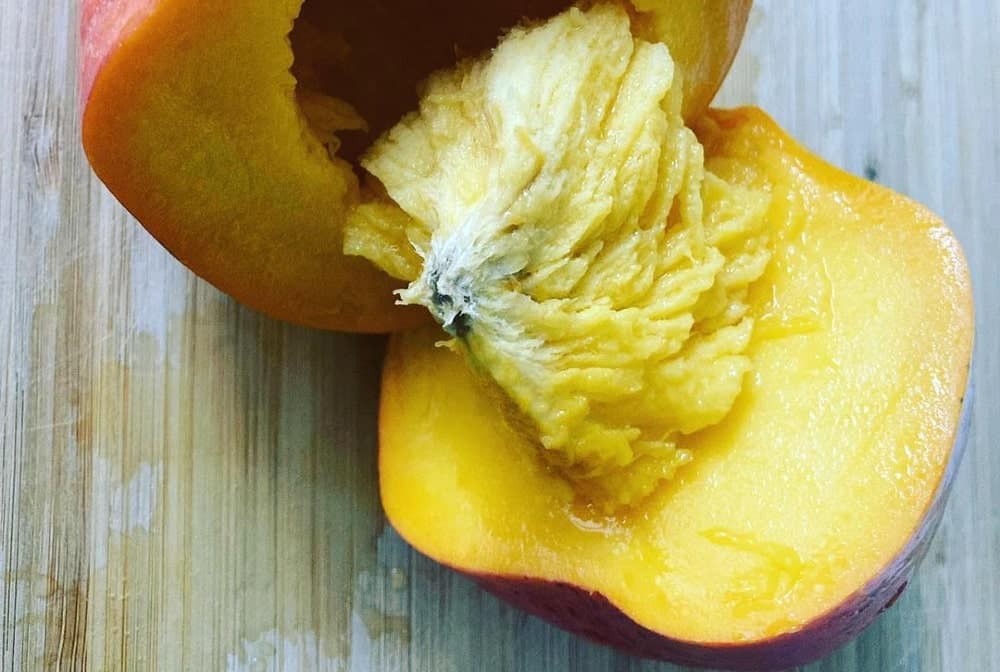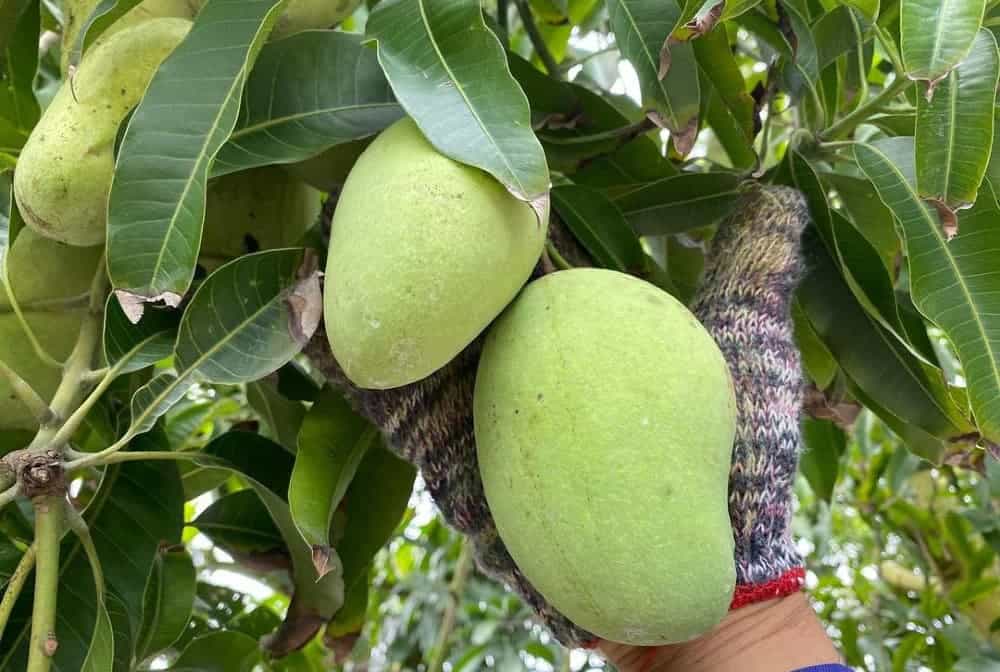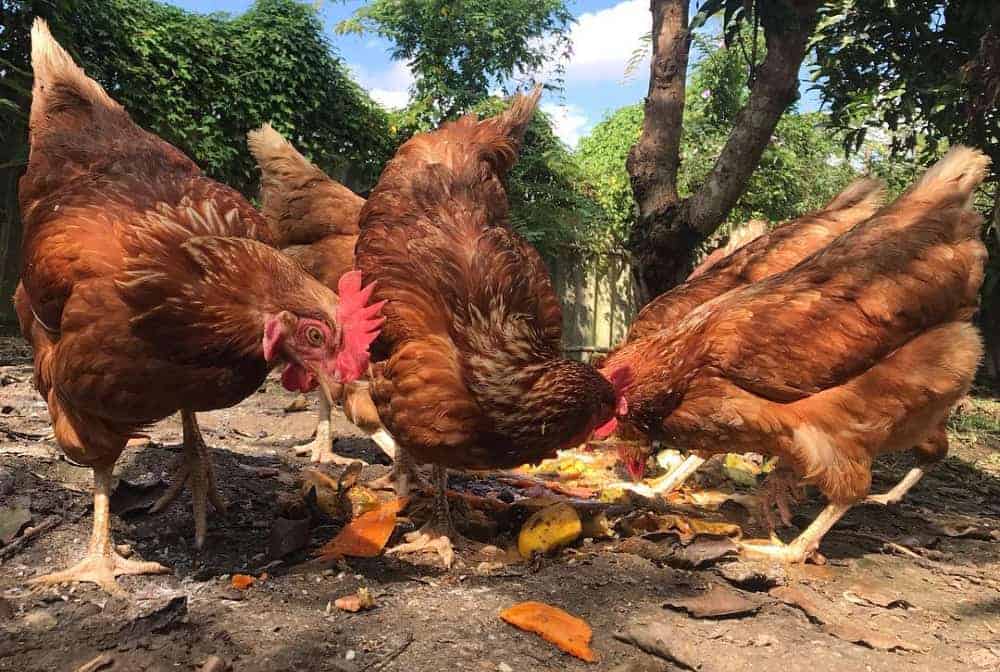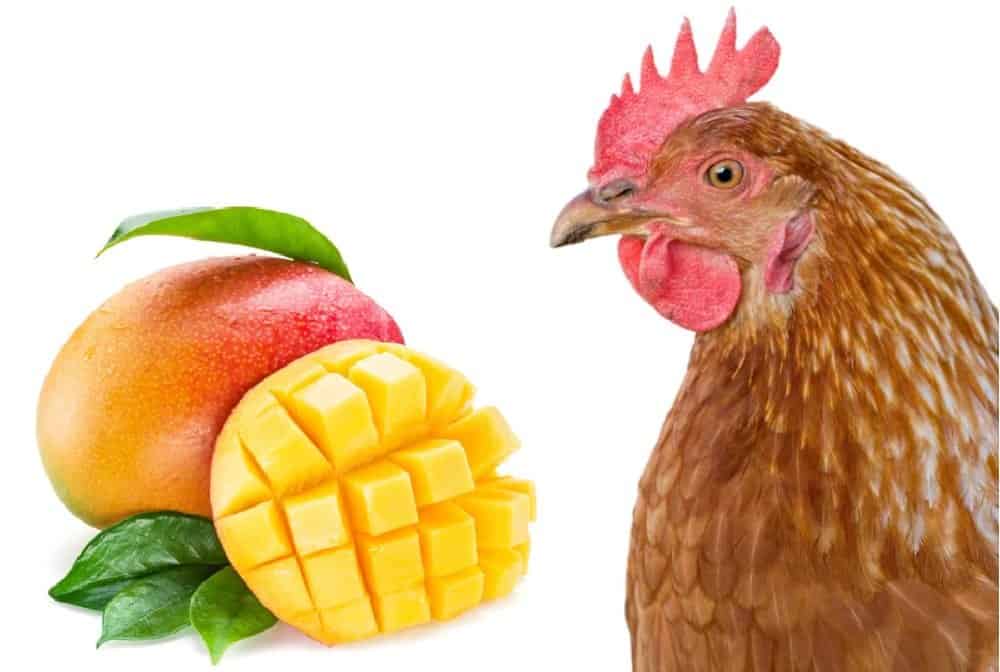Chickens can safely eat mango, and many enjoy the fruit as a treat. The sweet flesh of mango makes it a popular choice for chicken owners looking to add some variety to their pet’s diet.
Mangoes contain a high sugar level, so it’s important to limit the amount your chicken consumes. A single mango can provide an entire day’s worth of sugar for a chicken, so it’s best to offer the fruit in moderation.
While chickens can eat mango, there are a few considerations to keep in mind.
In general, mango is a safe and healthy treat for chickens. Just be sure to offer it in moderation and remove the pit before feeding it to your pet.
Is Mango Good for Chickens?
Mango is a popular fruit that is often eaten as a snack or used in desserts. But did you know that mango is also good for chickens?
Mango is a good source of vitamins A and C, both of which are important for chickens. Vitamin A is necessary for proper vision and immunity, while vitamin C helps with wound healing and tissue repair.
Mango is also a good source of fiber, which is important for chickens’ digestive health. Fiber helps keep chickens regular and can also help reduce the risk of gastrointestinal problems.
So, if you’re looking for a healthy treat for your chickens, mango is a great option!
Edible Parts of the Mango

Mangoes are delicious and nutritious fruit that can be enjoyed by humans and chickens alike. While the majority of the fruit is safe for chickens to eat, there are a few parts of the mango that should be avoided.
The flesh of the fruit, however, is packed with nutrients and is a great treat for your feathered friends.
When feeding mangoes to your chickens, be sure to remove the skin and pit and cut the fruit into small pieces to avoid any choking hazards.
Which Part of the Mango Can Chickens Not Eat?
Chickens can eat most parts of the mango, but there are a few exceptions. The skin and pit of a mango are both inedible for chickens and can cause digestive issues if consumed.
The skin can be a choking hazard, and the pit can contain toxins that can make chickens sick.
If you’re not sure whether a part of the mango is safe for your chicken to eat, it’s best to err on the side of caution and avoid feeding it to them.
What is the Danger of Feeding Chickens Unripe Mango?
Mangoes are a delicious, tropical fruit that are enjoyed by people and animals alike. Chickens are no exception and will often eat mangoes that fall from trees. However, unripe mangoes can be dangerous for chickens to consume.
Unripe mangoes contain a substance called urushiol. This substance is also found in poison ivy and can cause an allergic reaction in chickens. Symptoms of urushiol poisoning in chickens include itchiness, redness, and swelling. In severe cases, it can lead to difficulty breathing and even death.
If you think your chicken has eaten an unripe mango, watch for signs of illness. If your chicken does become ill, consult a veterinarian immediately. With prompt treatment, most chickens will recover from urushiol poisoning.

How to Feed Mango to Your Chickens?
Mangoes are not only a delicious fruit enjoyed by humans, but chickens love them too! If you have a mango tree or can purchase them fresh, here’s how to feed mango to your chickens.
If you have a lot of fresh mangoes, you can also freeze them. This is a great way to store them so they don’t go bad. Simply cut up the mangoes and put them in a bag or container in the freezer. When you’re ready to feed them to your chickens, just thaw out the pieces and give them to your flock.
Tips on Feeding Chickens Mango
Here are a few tips on how to feed mango to your chickens:
- Choose ripe, fresh mangoes. Chickens prefer mangoes that are ripe and soft. Avoid giving them mangoes that are overripe or have started to turn bad.
- Cut the mango into small pieces. Chickens can’t eat large pieces of fruit, so it’s important to cut the mango into small pieces before giving it to them.
- Add the mango pieces to their regular food. You can either mix the mango pieces into their regular food, or put them in a separate bowl.
- Observe your chickens after they eat mangoes. Some chickens may be allergic to mangoes, so it’s important to observe them after they eat it. If they start to have any adverse reactions, such as diarrhea or vomiting, stop feeding them mangoes and consult your veterinarian.
Watch the Following Video on Chickens Eating mango
The Advantages of Feeding Your Chickens Mango
If you’re looking for a way to add some variety to your chickens’ diet, mangoes are a great option. Not only are they a tasty treat for your chickens, but they also offer a number of health benefits.
Mangoes are packed with vitamins and minerals, including beta-carotene, Vitamin C, and potassium. They also contain enzymes that can help with digestion. Mangoes can help boost your chickens’ immune system, keeping them healthy and free from disease.
Mangoes are a good source of energy, so they can help your chickens stay active and lay more eggs. And, because they’re high in fiber, they can help keep your chickens’ digestive system healthy and prevent problems like diarrhea.
So, if you’re looking for a way to give your chickens a nutritious treat, add mangoes to their diet. Your chickens will love them, and they’ll be getting all the benefits that mangoes have to offer.
The Disadvantage of Feeding Your Chickens Mango
Mango is a high sugar fruit, and as such, can lead to obesity in chickens. It is also a fatty fruit, which can cause liver problems.
Mango skin and pits contain toxins that can be harmful to chickens, so it is important to remove these before feeding the fruit to your birds.
Mango is a tropical fruit, and as such, is not available year-round in most parts of the world. This can make it difficult to keep a consistent supply of this fruit for your chickens.
Overall, mango is a healthy treat for chickens, but should be given in moderation due to the potential health problems it can cause.
What Happens if You Overfeed Your Chickens With Too Much Mango?
If you overfeed your chickens with too much mango, they may experience digestive issues and diarrhea. Mango is a high-sugar fruit, and too much of it can cause an imbalance in the chicken’s digestive system.
Too much mango can also lead to weight gain and obesity in chickens. If you think your chicken has overeaten, offer them plenty of water and watch for any signs of illness.

FAQs on Mango For Chickens
Are mangos healthy for chickens?
Mangoes are incredibly healthy for chickens and are packed with nutrients that help keep them healthy and happy. Mangoes are high in Vitamin C, which helps to boost the immune system, and are also a good source of fiber, which aids in digestion.
Are mangos toxic to chickens?
It is believed that the pits of the fruit contain a toxic substance that can make chickens sick. If you do decide to feed your chickens mangos, be sure to remove the pits first.
Can chickens eat mango rinds?
Chickens can chickens eat mango skins, but they should be avoided if possible. The rinds can be a choking hazard and can also contain toxins that can be harmful to chickens.
Can chickens eat mango leaves?
Mango leaves are not toxic to chickens and can actually be quite beneficial for them. The leaves contain tannins which can help to prevent parasites and also improve the chicken’s digestion. They can also help to keep the chicken’s coop clean and free from bacteria.
Do mangos give chickens diarrhea?
Mangos are not toxic to chickens, but they can potentially cause digestive upset if your chicken eats too much of the fruit. The sugar and acid content in mangos can cause an upset stomach, so it’s best to limit your chicken’s intake.
If your chicken does eat too many mangos, you may notice loose stools or diarrhea. If you see these signs, stop feeding your chicken mangos and offer her some plain, cooked rice to help settle her stomach.
Closing Thoughts
Chickens can eat mango, but only in moderation. The high sugar content in mango can cause health problems for chickens if they eat too much of it. Mango is a good source of vitamin A and other nutrients, so it can be a healthy treat for chickens. Just be sure to limit their intake and provide them with plenty of fresh water to avoid any issues.
Sources:
- Dietary fibre in laying hens: a review of effects on performance, gut health and feather pecking (World’s Poultry Science Journal
Volume 77)
https://www.tandfonline.com/doi/full/10.1080/00439339.2021.1960236 - Urushiol (Science Direct)
https://www.sciencedirect.com/topics/medicine-and-dentistry/urushiol
